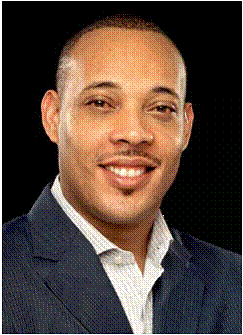Filed Under > NYC Schools
TC Launches Harlem Schools Partnership
Teachers and administrators from 10 Harlem schools gather at Teachers College to kickoff the ambitious collaboration that is designed to build capacity in math and science teaching and learning.
Dr. George Jenkins grew up in a crime-ridden neighborhood in Newark Harlem public school educators at Teachers College on March 28, by his third-grade teacher Viola Johnson, who inspired him to dream of college and a better life.
“That dream kept me out of trouble,” said Jenkins, who would go on to co-author a book with two high school friends about their extraordinary ascent from the mean streets of Newark to medical and dental school. “I knew I wanted to go to college. Having that dream made it a lot easier for me to turn down a lot of the offers that were coming my way and not in a good way. That is what we have to instill in these young people’s minds in order to make them believe that they can grasp math and science.”
Jenkins, who is now Assistant Professor of Clinical Dentistry at Columbia University, and his message of hope and achievement despite the odds served as the inspirational kickoff of the Harlem Schools Partnership (HSP ), an ambitious $5-million Teachers College grant project funded by the GE Foundation to turn 10 Harlem public schools into models of teaching and learning in the so-called STEM (science, technology, engineering and mathematics) fields. TC is collaborating on the project with Columbia University
The Harlem elementary, middle and high schools involved in the partnership are PS 36, PS 153, PS 28M, PS 154M, PS 161, PS 180M, IS 195, HS 680 and HS 540. At its core, HSP is a professional development initiative, and the goal of the meeting was to gather input from the teachers and administrators as to what would best serve their needs in the classroom.
“We want to make sure that the teachers and the administrators have a vested interest in the partnership,” said Janell Catlin, HSP Project Director within TC’s Office of School and Community Partnerships. “The only way to do that is to truly understand their needs and to make sure their voices are valued in order to match their professional development needs with the expertise we have here at Teachers College in terms of science, technology, engineering and mathematics.”
As a result, all of the teachers took part in breakout sessions led by TC faculty members Felicia Moore Mensah, Ellen Meier, Susan Lowes and Ann Rivet designed to explore the educators’ professional development needs and draw out key themes that could become elements of the partnership over the next five years. Other sessions dealt with a variety of subject matter, from math and science to video games as teaching tools and working with English language learners.
“I really like how they are collecting data from us about what we need in the classroom,” said Nicole Fletcher, a first grade teacher at PS 36 who is pursuing a master’s degree in curriculum and teaching at TC. “I went to workshops on science and math, and they were really, really helpful, especially the science. In terms of math, we have the everyday math curriculum, but science and social studies are almost always pushed off to the side. So integrating science into the time I have for literacy or the time I have for math is quite helpful.”
Margaret Hood, a fifth-grade teacher at PS 153, was also hopeful about the partnership, noting that a sustained effort over time to build capacity combined with the resources of Teachers College and Columbia
“I think any help that our kids get and the community gets is a positive,” Hood said. “And the focus on math and science is extremely important because those two areas are suffering in our schools. Our schools are trying and we’re starting to get the technology in our classrooms, but we’re not always getting trained on how to use the equipment. That’s starting to happen and we’re catching up—we’re getting there. So this partnership can help a lot.”
Catlin said there are already tentative plans to create a professional development course for the educators that would begin in fall of 2009, and possibly a symposium in the spring of 2010 that would allow the teachers and administrators to share experiences and knowledge. There is also a possibility for a summer institute in 2010.
“Those are the basic core elements and the faculty and graduate student work is more at the grassroots and will more fully develop over time through a more organic process as they work intimately with teachers and students in the schools,” Catlin said. “The partnership is going to look a little different at different schools.”
During his presentation, Jenkins called on the educators to help their students aspire to professions beyond those of athletics or music. And if they can inspire their students to pursue their education, Jenkins said that those same young people—toughened by their sometimes trying experiences—will draw strength from that background to achieve their dreams. He knows this to be true, he said, because he is living proof.
“A lot of my friends wanted to be physicians and dentists and things like that but then organic chemistry walked into their lives,” Jenkins said. “They got that first bad grade on that first exam and let that tell them they couldn’t do it. We’ve got to make them tougher than that—and they are, especially if they are coming from the inner city. They have that advantage that other young people who aren’t exposed to that stuff don’t necessarily have. I was cool under fire [in dental school] because it wasn’t actual gunfire.”
Published Monday, Apr. 13, 2009
